“Kosovo status cannot be resolved outside UNSC”
Serbian PM Ivica Dačić stressed at the UNSC session Tuesday that any solution for the Kosovo issue that did not have the consent of the UNSC was unacceptable.
Wednesday, 22.08.2012.
09:49

NEW YORK Serbian PM Ivica Dacic stressed at the UNSC session Tuesday that any solution for the Kosovo issue that did not have the consent of the UNSC was unacceptable. He said that such was the announcement by the international Steering Group regarding the implementation of the Ahtisaari Plan. “Kosovo status cannot be resolved outside UNSC” Dacic expressed sincere gratitude to the majority of UN member states that respected Serbia's sovereignty and territorial integrity and had not recognized Kosovo's unilateral declaration of independence and recalled that no solution for Kosovo's status had been approved by the UN Security Council, and no comprehensive settlement had been accepted by the stakeholders, which is why "it is the position of the Republic of Serbia that Kosovo cannot be allowed to accede to any international organization in which membership is reserved for sovereign states." "With respect to the interim arrangements achieved in Brussels during the EU-facilitated technical talks, as referenced in paragraph 14 of today's Report, I underline that they are without a doubt status-neutral and accord with resolution 1244," he said. "In our view, many incidents are part of an orchestrated campaign of intimidation directed at Kosovo Serbs," he stated commenting on frequent attacks on the Serbian community in Kosovo. "It clearly has the ultimate aim of completing the total ethnic cleansing of Serbs and the cultural cleansing of our patrimony. The results are clear: only 45 Kosovo Serb internally displaced persons returned to the province during the reporting period, according to the UNHCR - less than half that did so during the same period last year. Let me remind the Council that according to the UN, more than 200,000 non-Albanians have been expelled from the territory of Kosovo and Metohija since June 1999," the prime minister remarked. Reflecting on the insufficiently transparent reconfiguration of EULEX and the announcement of the International Steering Group regarding the forcible implementation of the Ahtisaari Proposal which Serbia has not accepted, Dacic said that these constitute disturbing developments. He said that "it is the view of Serbia that the only institution of indisputable and universal legitimacy authorized to make these sorts of changes is the Security Council." "As what EULEX calls its ‘reconfiguration’ has not been put before the Security Council for approval, nor was it authorized by anyone representing the UN, it does not conform to Resolution 1244," the prime minister said. "Moreover, unilaterally "removing the executive authority of the international organizations operating in Kosovo […] is a further demonstration of Pristina's complete disregard of the exclusive jurisdiction of the Security Council in this matter," Dacic pointed out. "Let me underline that despite these disturbing developments, our longstanding position on the European Union's engagement in Kosovo remains unchanged. We believe the EU should sustain its status-neutral efforts in order to build the missing institutional environment and improve the dismal societal conditions in the province. I would to clearly state the position of Serbia that deeper engagement by EULEX is required, not a retrenchment," he added. "If EULEX does not have enough capacity, an alternative is for UNMIK to review its own reconfiguration and presence level," the prime minister noted. "Should it become necessary, Serbia will work through the Fifth Committee of the General Assembly to ensure additional funds are allocated to UNMIK through the forthcoming budgeting process," he said. Speaking about the decision by the Kosovo authorities to ban the use of Serbian license plates issued for Kosovo, Dacic quoted the European NGO Diadikasia which stated in its report that "there is a pattern, according to which only certain couples of letters are issued to members [...] of the Serb community," and another Kosovo official who said that ""it is a public secret that Serb cars are marked." "Seven decades after the Old Continent saw the end of regimes visually marking members of ethnic groups in public, the practice has now returned to European shores," Dacic noted. Speaking about the investigation into the allegations included in Dick Marty's report on human organ trafficking, the PM said that in order to uncover the full truth, the Task Force needed to examine all allegations from the Council of Europe report which identifies a number of senior KLA officials as having "played vital roles as co-conspirators in various categories of criminal activity," including human organs trafficking. "Serbia underscores our belief that the Security Council must play a significant role in this matter, because it is the body able to secure the obligatory, binding cooperation of the member states," the prime minister stated. "We are committed to forging a lasting peace between Serbs and Albanians in the Balkans. For such a peace to be lasting, it will also need to be just. I say this to you not only as Serbia's prime minister, but foremost as someone who was born in Kosovo and Metohija, in Prizren-a city that in the Medieval period served as the Serbian capital, a city in which today barely twenty Serbs remain. This will require both parties to make difficult and courageous decisions. We are ready to do our part," Dacic stated. According to him, Serbia is ready for normalization and regional reconciliation, as this is in the interest of ordinary citizens. Dacic stressed that Belgrade was ready for high-level talks with Pristina but stressed that Pristina needed to show readiness to compromise as well. Ivica Dacic (Tanjug, file) Tanjug
“Kosovo status cannot be resolved outside UNSC”
Dačić expressed sincere gratitude to the majority of UN member states that respected Serbia's sovereignty and territorial integrity and had not recognized Kosovo's unilateral declaration of independence and recalled that no solution for Kosovo's status had been approved by the UN Security Council, and no comprehensive settlement had been accepted by the stakeholders, which is why "it is the position of the Republic of Serbia that Kosovo cannot be allowed to accede to any international organization in which membership is reserved for sovereign states.""With respect to the interim arrangements achieved in Brussels during the EU-facilitated technical talks, as referenced in paragraph 14 of today's Report, I underline that they are without a doubt status-neutral and accord with resolution 1244," he said.
"In our view, many incidents are part of an orchestrated campaign of intimidation directed at Kosovo Serbs," he stated commenting on frequent attacks on the Serbian community in Kosovo.
"It clearly has the ultimate aim of completing the total ethnic cleansing of Serbs and the cultural cleansing of our patrimony. The results are clear: only 45 Kosovo Serb internally displaced persons returned to the province during the reporting period, according to the UNHCR - less than half that did so during the same period last year. Let me remind the Council that according to the UN, more than 200,000 non-Albanians have been expelled from the territory of Kosovo and Metohija since June 1999," the prime minister remarked.
Reflecting on the insufficiently transparent reconfiguration of EULEX and the announcement of the International Steering Group regarding the forcible implementation of the Ahtisaari Proposal which Serbia has not accepted, Dačić said that these constitute disturbing developments.
He said that "it is the view of Serbia that the only institution of indisputable and universal legitimacy authorized to make these sorts of changes is the Security Council."
"As what EULEX calls its ‘reconfiguration’ has not been put before the Security Council for approval, nor was it authorized by anyone representing the UN, it does not conform to Resolution 1244," the prime minister said.
"Moreover, unilaterally "removing the executive authority of the international organizations operating in Kosovo […] is a further demonstration of Priština's complete disregard of the exclusive jurisdiction of the Security Council in this matter," Dačić pointed out.
"Let me underline that despite these disturbing developments, our longstanding position on the European Union's engagement in Kosovo remains unchanged. We believe the EU should sustain its status-neutral efforts in order to build the missing institutional environment and improve the dismal societal conditions in the province. I would to clearly state the position of Serbia that deeper engagement by EULEX is required, not a retrenchment," he added.
"If EULEX does not have enough capacity, an alternative is for UNMIK to review its own reconfiguration and presence level," the prime minister noted.
"Should it become necessary, Serbia will work through the Fifth Committee of the General Assembly to ensure additional funds are allocated to UNMIK through the forthcoming budgeting process," he said.
Speaking about the decision by the Kosovo authorities to ban the use of Serbian license plates issued for Kosovo, Dačić quoted the European NGO Diadikasia which stated in its report that "there is a pattern, according to which only certain couples of letters are issued to members [...] of the Serb community," and another Kosovo official who said that ""it is a public secret that Serb cars are marked."
"Seven decades after the Old Continent saw the end of regimes visually marking members of ethnic groups in public, the practice has now returned to European shores," Dačić noted.
Speaking about the investigation into the allegations included in Dick Marty's report on human organ trafficking, the PM said that in order to uncover the full truth, the Task Force needed to examine all allegations from the Council of Europe report which identifies a number of senior KLA officials as having "played vital roles as co-conspirators in various categories of criminal activity," including human organs trafficking.
"Serbia underscores our belief that the Security Council must play a significant role in this matter, because it is the body able to secure the obligatory, binding cooperation of the member states," the prime minister stated.
"We are committed to forging a lasting peace between Serbs and Albanians in the Balkans. For such a peace to be lasting, it will also need to be just. I say this to you not only as Serbia's prime minister, but foremost as someone who was born in Kosovo and Metohija, in Prizren-a city that in the Medieval period served as the Serbian capital, a city in which today barely twenty Serbs remain. This will require both parties to make difficult and courageous decisions. We are ready to do our part," Dačić stated.
According to him, Serbia is ready for normalization and regional reconciliation, as this is in the interest of ordinary citizens.
Dačić stressed that Belgrade was ready for high-level talks with Priština but stressed that Priština needed to show readiness to compromise as well.










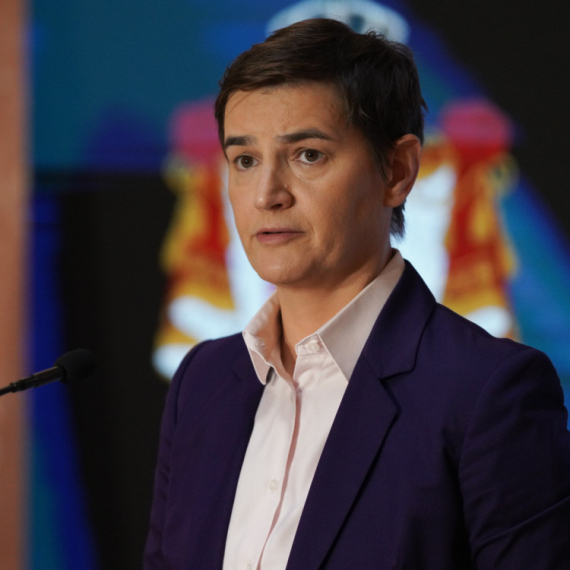

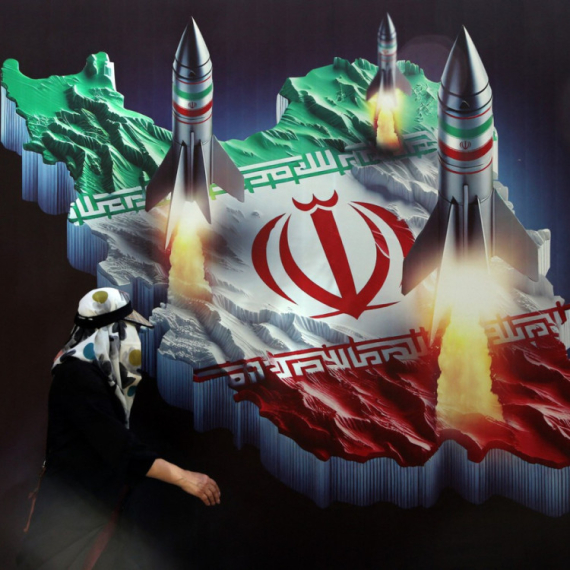

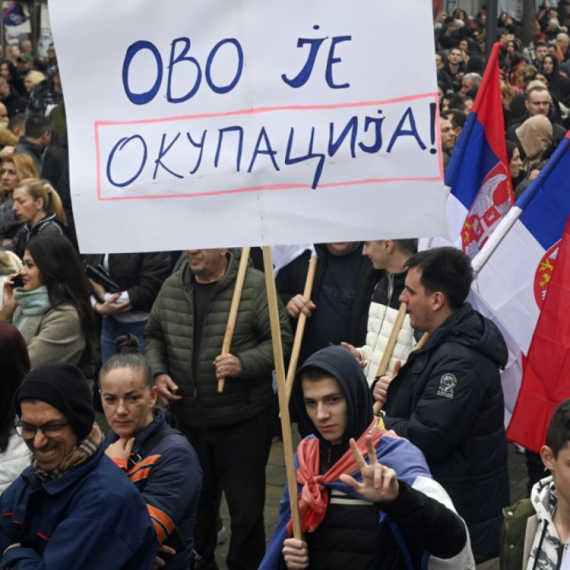


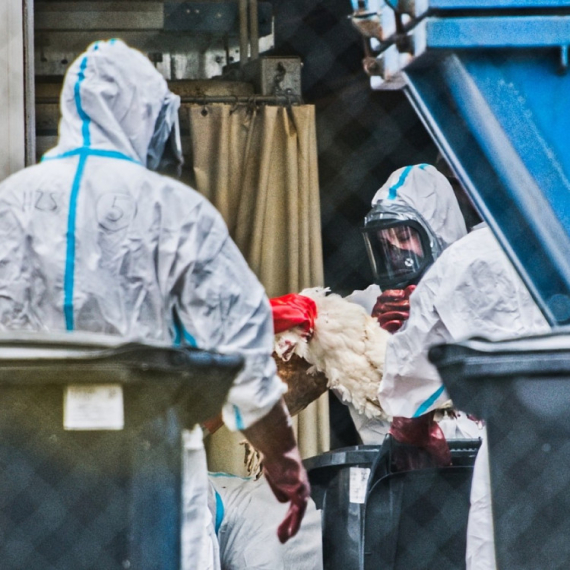

















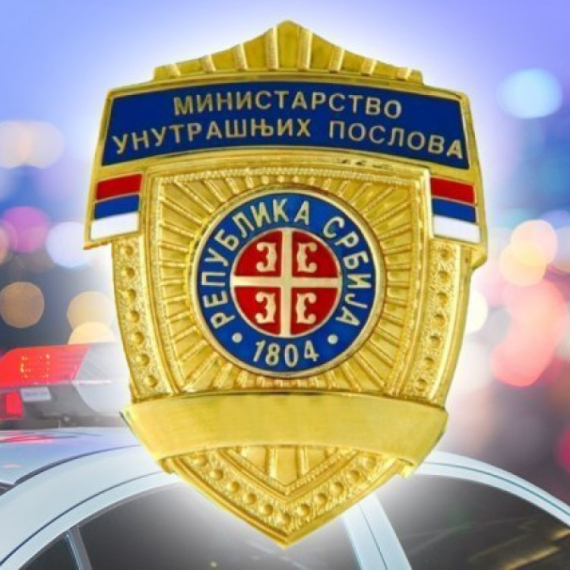




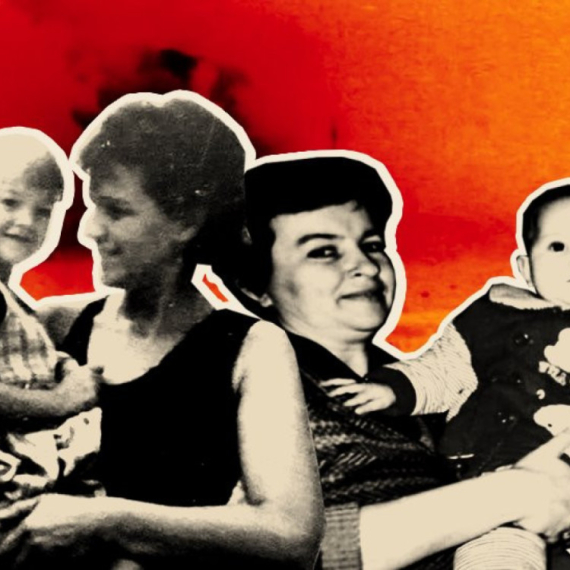





Komentari 23
Pogledaj komentare